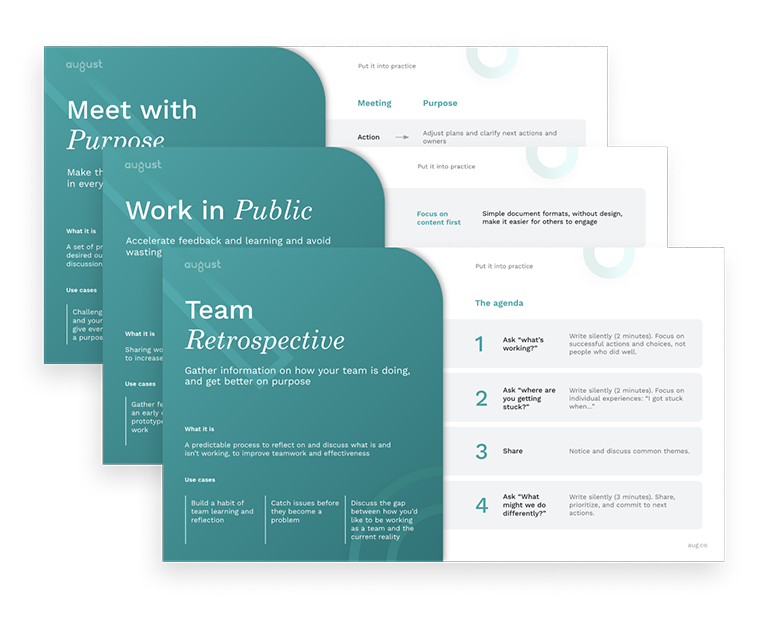Published July 6, 2022 | Updated December 20, 2024 | 3 minute read
A common question I often hear when I start working with new organizations is this:
What are the biggest challenges to creating organizational change?
To be polite, I always frame my answer in terms of openings rather than roadblocks. “Well, more than anything, I’d say leadership buy-in is key.”
Heads nod. Voices mm-hm in affirmation. It’s reflexively obvious: Leaders’ active participation is crucial to creating meaningful, lasting change.
We all know this. Leaders know by training, experience and intuition that their job is to lead by example. And junior team members understand by those same tokens that they’ll be wasting their time trying to implement change if leadership isn’t on board.
And yet…
Across all the teams, levels of seniority, industries and different size companies we’ve worked with, the sad truth is that it is almost always the senior-most leaders who are the least willing to invest the time and effort needed to change their organizations.
Why? Because organizational change requires leaders to change themselves too.
I can count on one hand the number of senior executives, out of the hundreds we’ve worked with, who have truly attempted to change their own ways of working as much as they hoped to change their company’s.
Here are the five things these special leaders do differently.
1. Make time.
Leaders who are serious about creating lasting organizational change recognize that change can be hard, and it may require you to slow down before you can speed up. They plan for this by blocking out time on their calendars to:
-
Get coaching from outside experts
-
Work with team members to solve problems arising from the transition
-
Slowly and reflectively try out new practices and processes with the team
-
Think, process, and let the new ideas marinate
2. Do your homework.
Committed change leaders are voracious consumers of new ideas. They dive deep into the why behind the change we’re trying to make. They read. They listen to podcasts and watch videos. They share key takeaways and revelatory resources with their teams. They show up and actively participate in the workshops and group learning sessions.
3. Debate like a pro.
Great change leaders vigorously work through different arguments - both for and against. Rather than reacting defensively, they welcome challenging perspectives and engage in discussions about what it means, and how new ideas could be applied.
4. Change your mind.
These leaders fully adopt a growth mindset. They are ready and willing to feel uncomfortable, to feel like a beginner again. They acknowledge that some of their most deeply held beliefs and assumptions might need to be reevaluated and even thrown out to make it possible to create something new.
5. Practice. Practice. Practice.
These leaders recognize that, just like playing soccer or practicing piano, building new skills requires repetition over time. You’ll probably be bad at first. But if you stick with it and focus on making small improvements each time, you begin to get better. Eventually you will be able to do things that you couldn’t do before, and these new skills will serve you the rest of your career.
From what I’ve seen, leaders who practice these 5 behaviors have an immense impact. It’s possible to create lasting organizational change without it…but it’ll be slower and more difficult for everyone.
Leaders: To unlock your organizational transformation, be the change you want to see.


.jpg)






